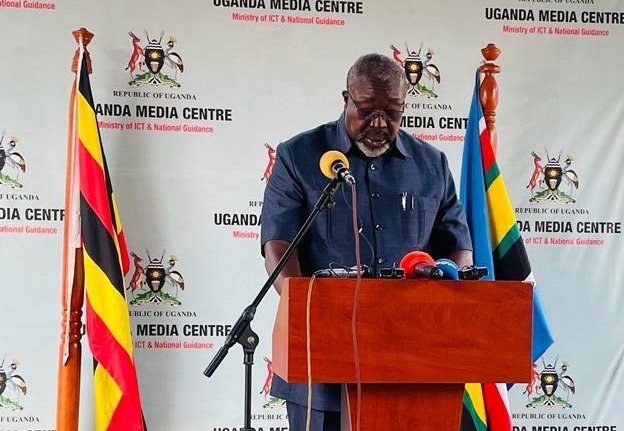Government to deploy labour attachés in UAE to monitor Uganda workers
The initiative comes at a time when over 1, 500 Ugandans stranded in the UAE have so far been repatriated – 280 possessing their passports and 1, 220 without passports.

The government is looking forward to deploying labour attachés to Saudi Arabia, United Arab Emirates (UAE) and Qatar as one of the ways to strengthen its monitoring mechanism of Ugandans working and living in the Arabian Gulf.
The initiative comes at a time when over 1, 500 Ugandans stranded in the UAE have so far been repatriated – 280 possessing their passports and 1, 220 without passports.
The Minister of State for Labor, Employment and Industrial Relations, Okello Charles Engola Macodwogo said the country has signed several agreements with countries like UAE to prevent situations of abuse of domestic workers.
In addition, Macodwogo noted that the government has sanctioned labour companies which have breached the regulations and guidelines for the externalization of labour.
“The ministry has also developed the external employment management system which has digitalized all document processes including license application and issuance as well as clearance of migrant workers,” he revealed.
“Under phase 3, the external employment management system will be upgraded to allow distressed migrant workers to digitally report complaints,” he said.
He added that labour externalization has offered 300, 000 job opportunities to Ugandans each earning an average of Shs1, 000, 000.
From this, there has been a formidable source of foreign direct income with annual remittances of about $900 million per year.
According to the ambassador of Uganda to UAE, H.E Kibedi Zaake, earlier in August 2021, United Arab Emirates granted amnesty to Ugandans stranded in UAE for 3 months – from August to October this year.
He said that as the amnesty is about to end next week, 3.5% of Ugandans are still in the United Arab Emirates illegally and haven’t processed their repatriation back to Uganda.
“Amongst the nationalities that turned out for the amnesty, Uganda was among over 1, 000 citizens which make up 50% of the numbers that turned up for amnesty.
“For the 1, 220 Ugandans who didn’t have passports, the Embassy of Uganda in UAE sought permission from the Ministry of Internal Affairs to issue the requisite travel documents known as certificates of identification.
“Upon authorization, we issue all the remaining Ugandans without passports with certificates of identity,” he explained.
A dataset released by the gender ministry last year indicated that migrant workers totalled 9,967 in 2010 with the majority in Iraq, Afghanistan and the United Arab Emirates.
This has grown three-fold; increasing to 28,233 by the end of April 2021.
The government data shows that at least 98 percent of migrant workers are in the Middle East numbering 140,402. Most are employed as casual labourers with only 0.2 percent holding professional jobs. A further 1.8 percent work in semi-professional placements.







